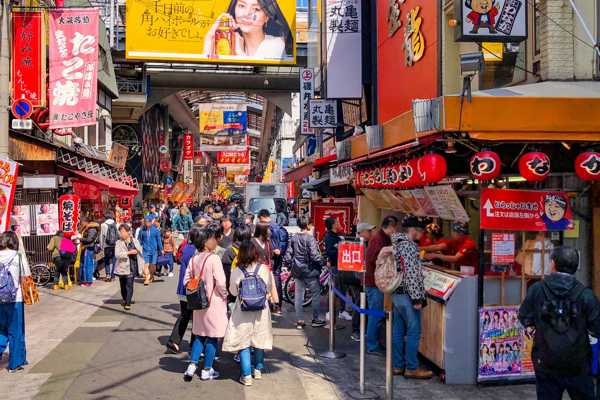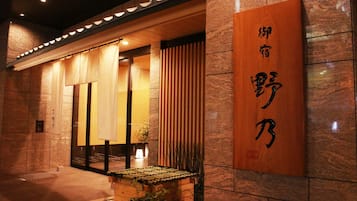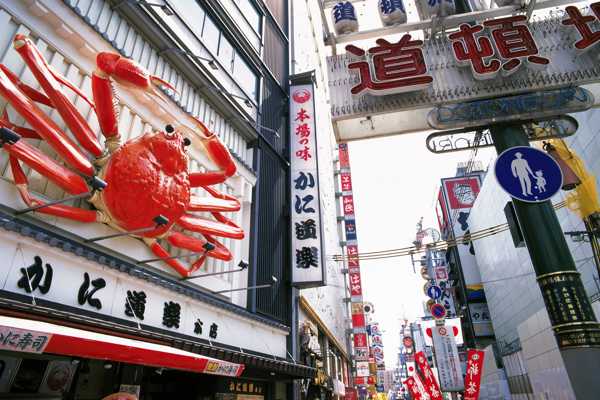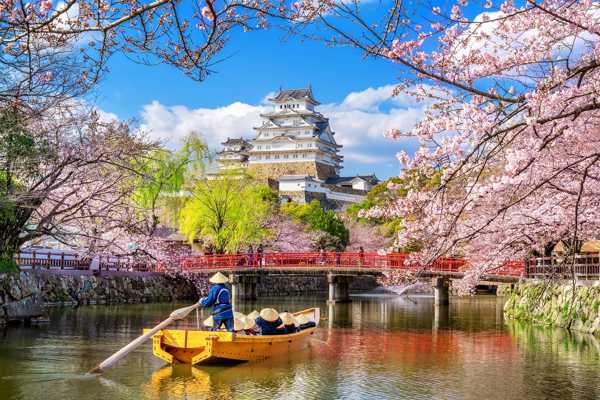Osaka is a with a blossoming tradition of gastronomy, so it’s easy to discover the best local dishes with the help of our list. The depth of Japanese cuisine is savoured in style at high-class traditional Japanese restaurants known as ryotei and kappo. Don’t forget to have your fill of the delicious pufferfish (fugu) dishes and udon hotpot (udon suki).
For good cheap eats, Osaka stands unrivalled over many other cities in Japan. Check out a variety of gastronomical delights, including flour-based foods (konamon) such as octopus balls (takoyaki) and Japanese pancakes (okonomikyaki), deep-fried skewers (kushikatsu) served at stand-and-eat dining spots, and steamed buns (butaman) you can enjoy while strolling around the city.
- 1
Takoyaki
A popular snack
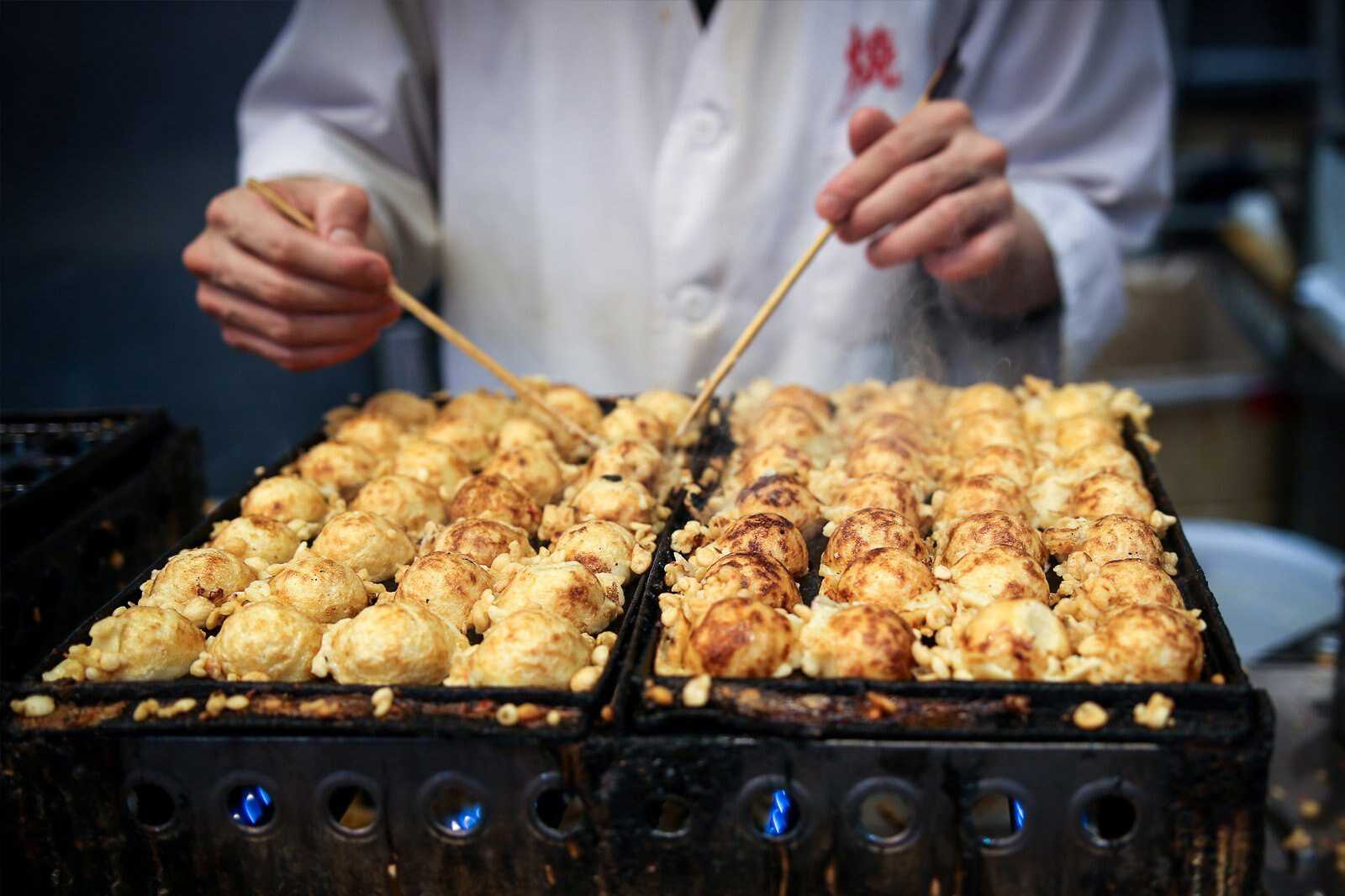
- Pasangan
- Keluarga
- Makanan
Takoyaki plays an important role at the heart of Osaka’s soul food as a street snack that's loved by pretty much everyone. If you’re sightseeing in Osaka town, you’re destined to eat takoyaki at least once. A mixture of flour and dashi stock is poured into a specialised takoyaki pan. It's then sprinkled with chopped octopus, red pickled ginger and green onion, before being turned frequently to make round balls, all the while frying away.
The classic way to eat takoyaki is with a sweet soy-based sauce, topped with nori seaweed and bonito flakes, but you can also add mayonnaise, or dip it into a cheese fondue or a soup.
Peta - 2
Stewed beef tendon (doteyaki)
Perfect for a cold winter night
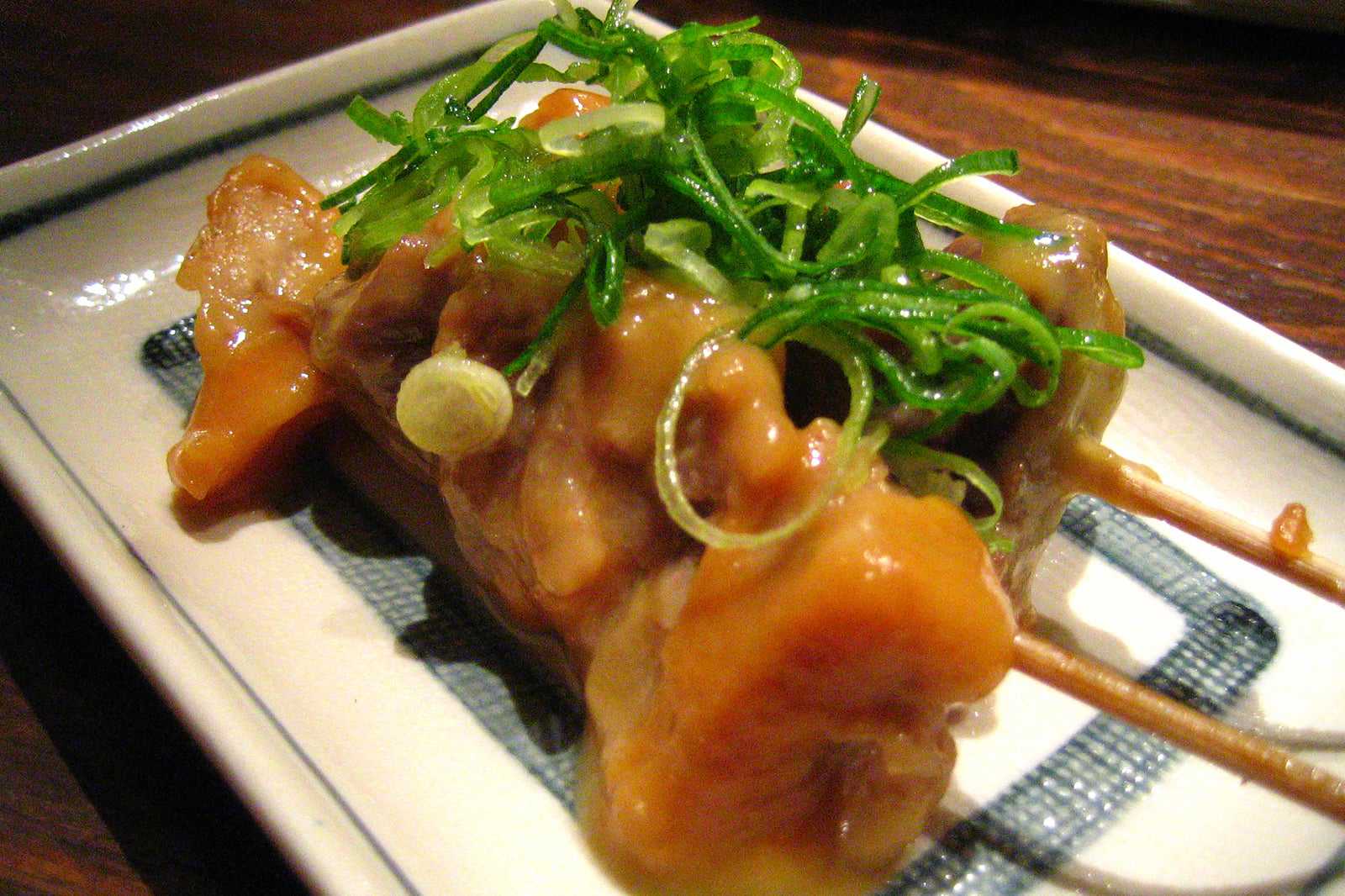
- Bajet
- Makanan
- Kumpulan
Skewered beef tendon, pre-boiled to remove extra fat and simmered with mirin and white miso, is just as popular as deep-fried skewers (kushikatsu) when it comes to good cheap eats in Shinsekai, Osaka. The name doteyaki, literally meaning 'cooked bank', is said to come from how the dish is cooked, simmering away while miso paste (placed around the edge of a deep pan to form a bank) is gradually mixed in.
Generally, people eat this super-tender and mild beef tendon stew with condiments such as a Japanese mixture of seven spices (shichimi) or chopped green onions. It goes with bevvies such as beer or shochu highball (chuhai).
Petafoto oleh ayustety (CC BY-SA 2.0) diubah suai
- 3
Deep-fried skewers (kushikatsu)
Bite-sized beef, vegetables or seafood for busy eaters
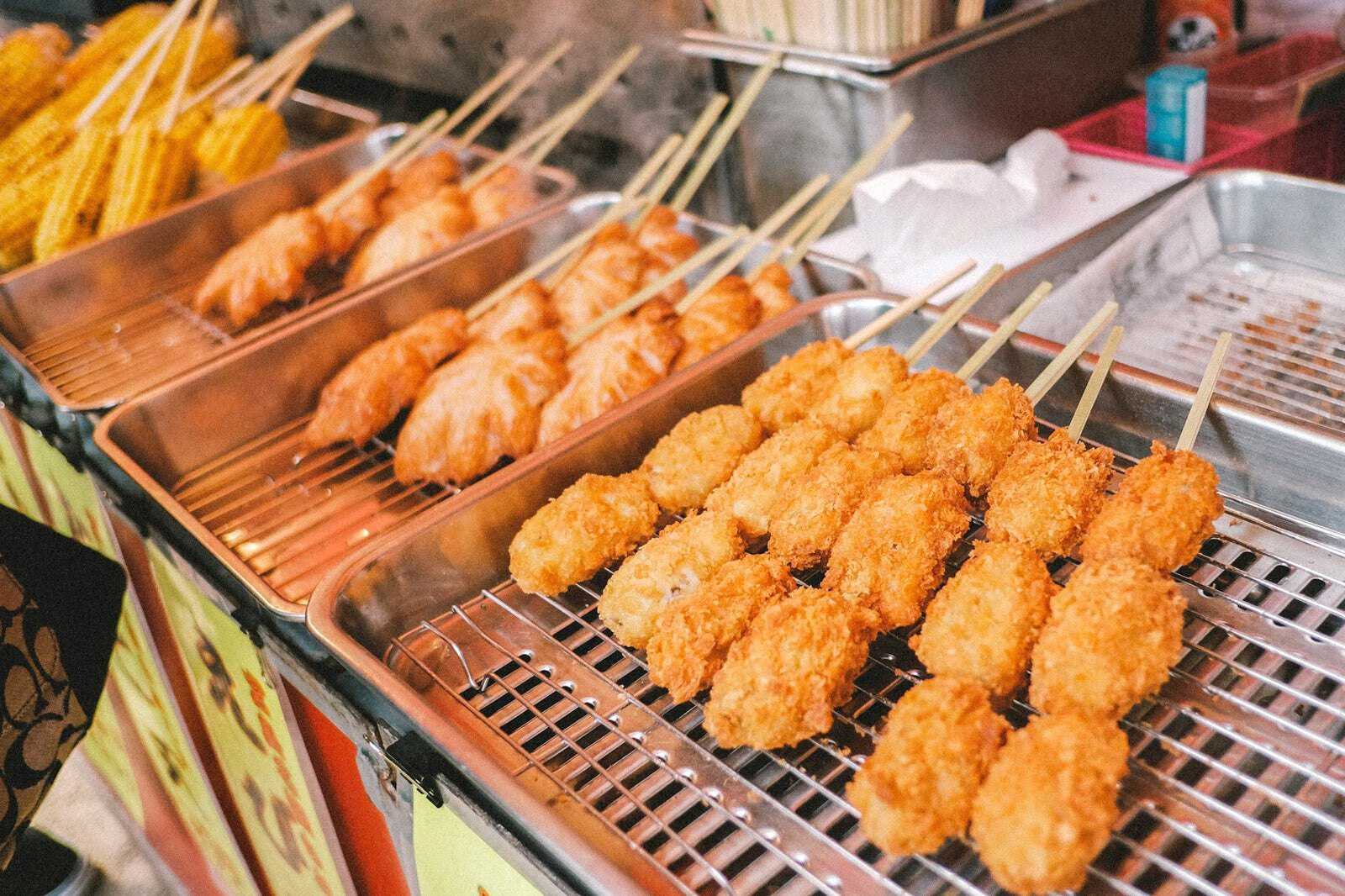
- Bajet
- Makanan
Kushikatsu is a popular downtown dish that locals enjoy just about every day. It dates back to the beginning of the Showa era when the proprietress of the Daruma restaurant in Shinsekai, Osaka, prepared and fried bite-sized beef, vegetables and seafood on skewers for busy workers. For that reason, many Kushikatsu restaurants adopt a stand-up dining style, and developed unique rules such as “No double-dipping” so that customers can share the sauces.
Usually, raw cabbage is served with the skewers to promote digestion. Cabbage also happens to be good for scooping up the sauce to add onto the skewers just in case you need some more flavour. Kushikatsu in Osaka has a single ingredient on each skewer.
Peta - 4
Udon hotpot (udon suki)
A warming wintertime dish for family dinners
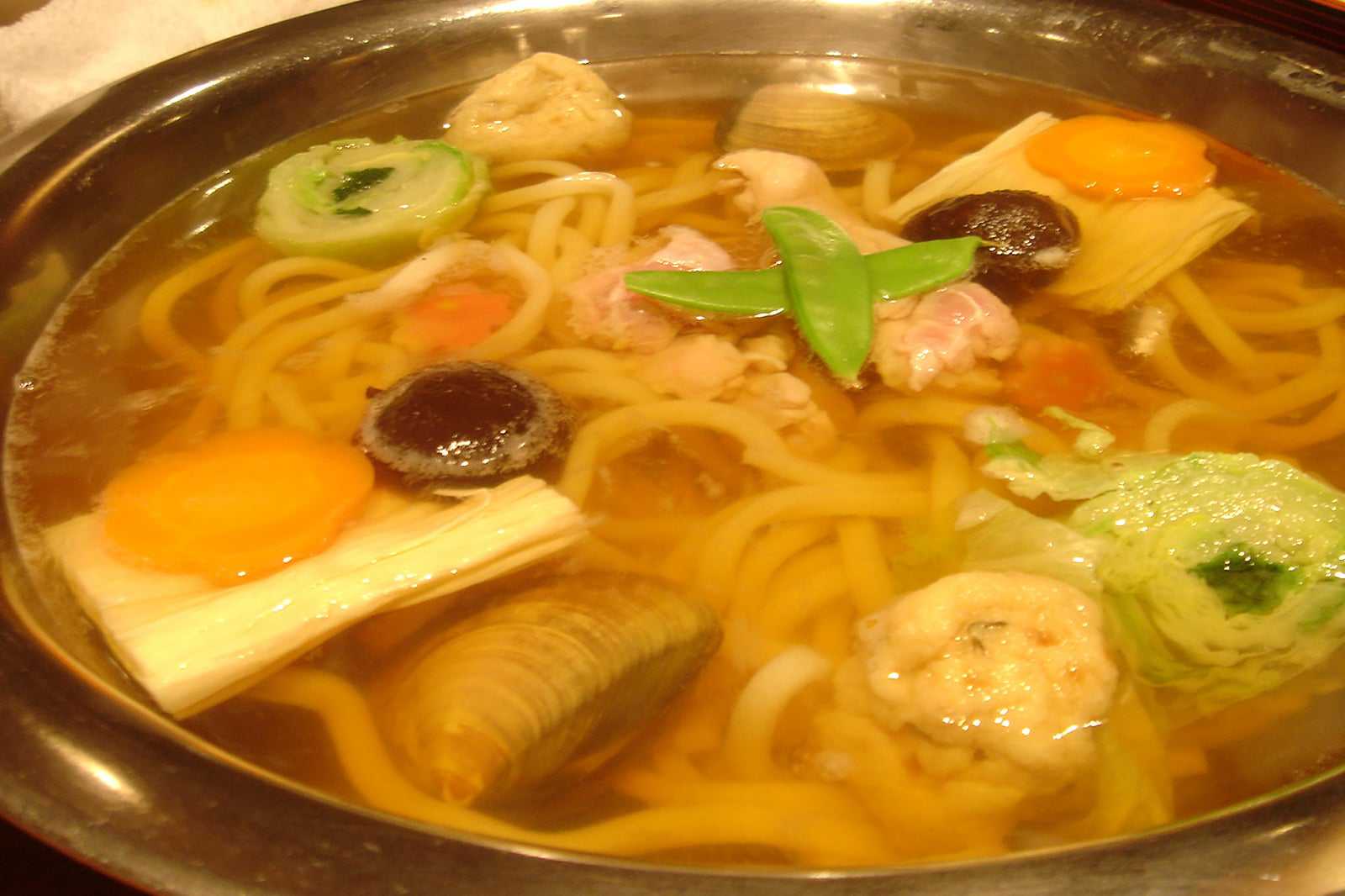
- Keluarga
- Makanan
- Mewah
Udon suki is a local dish that was invented in the traditional luxurious Japanese restaurants (ryotei) of Osaka during the early part of the Showa era. While its name may sound similar to sukiyaki (stewed beef seasoned with soy sauce and sugar), this dish is in fact totally different. This is a hotpot of udon noodles and various ingredients stewed together in clear stock.
Specialist udon restaurants offer udon suki with a luxurious hotpot containing fine and fresh ingredients such as shrimp and seafood, chicken, and seasonal vegetables. This is a popular wintertime dish for families at home, who sit together around an earthenware pot (donabe) to partake.
Peta - 5
Steamed pork buns (butaman)
Filling street food for urban explorers
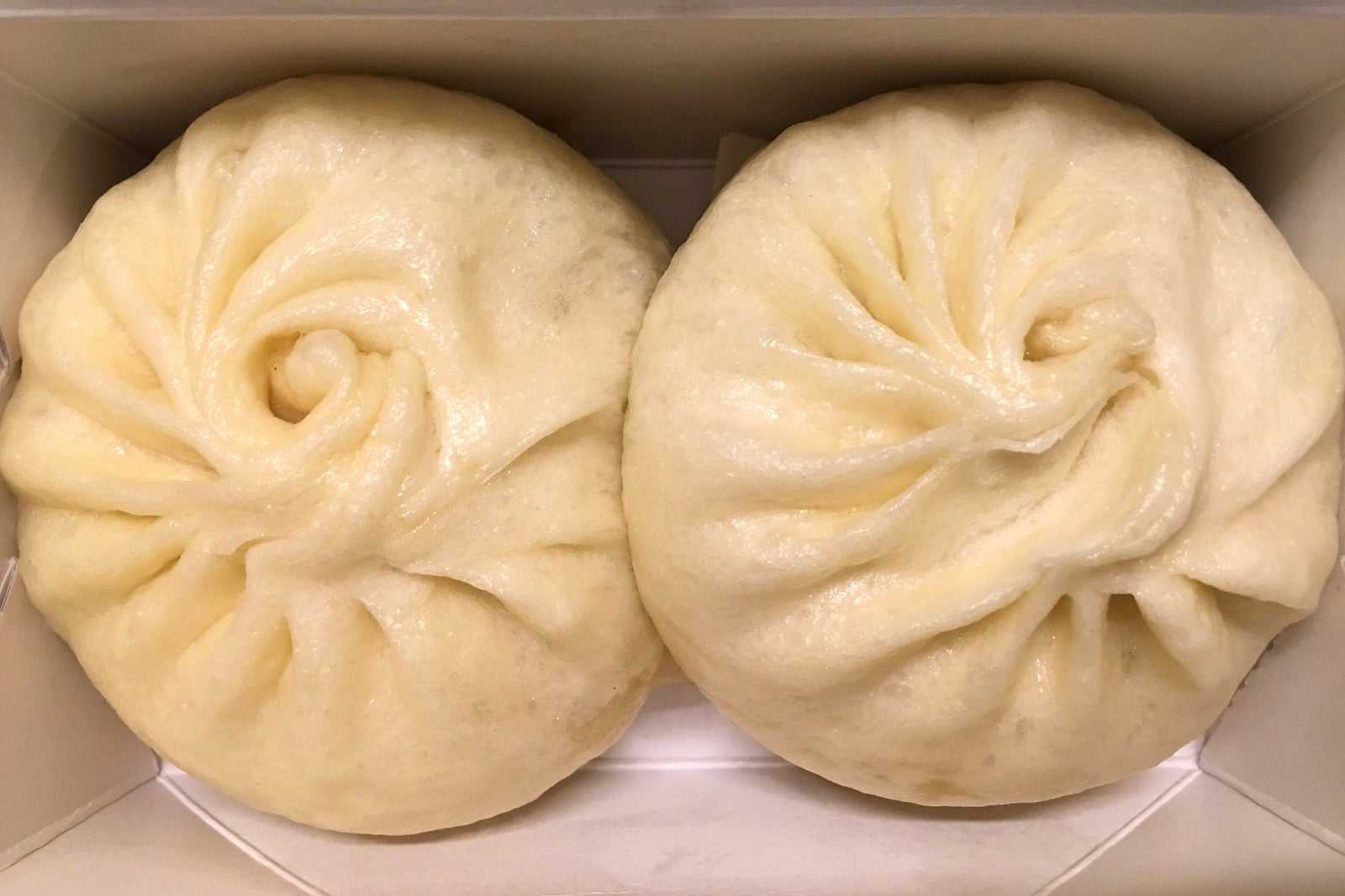
- Bajet
- Makanan
When it comes to Osaka soul foods, butaman is on the same level as okonomiyaki and takoyaki. The steamed pork bun has a natural sweetness that comes from the onions used in the pork filling. It's carefully wrapped in dough by hand before steamed in bamboo baskets.
You can buy a couple from a vendor and enjoy them while you're exploring the streets. Locals particularly enjoy butaman with mustard or Worcestershire sauce. So, why not try out both versions to see which one you like best.
Petafoto oleh bryansjs (CC BY-SA 2.0) diubah suai
- 6
Pufferfish hotpot (tecchiri) and sashimi (fugusashi)
Versatile Osaka staples
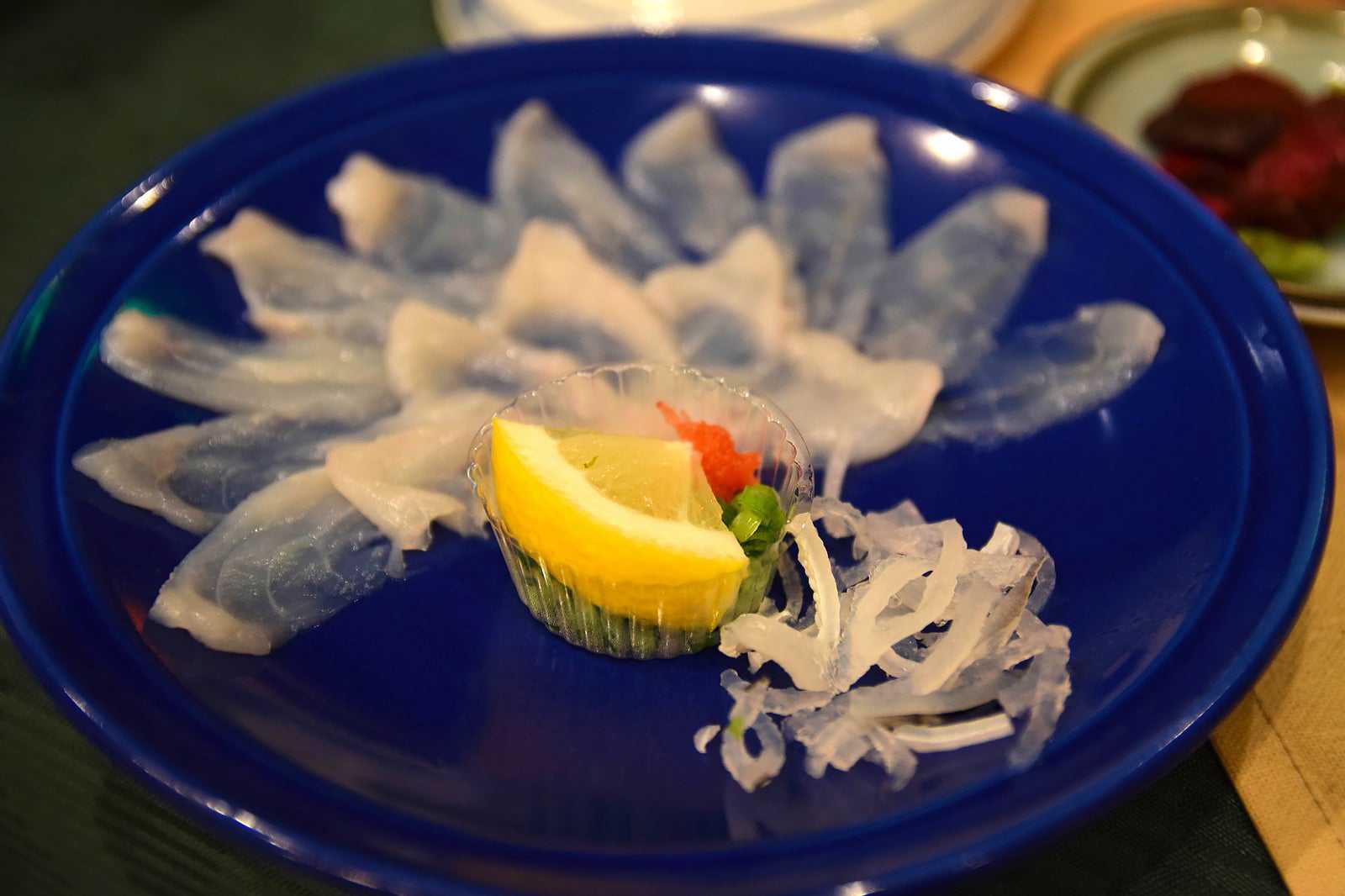
- Makanan
- Mewah
Osaka is renowned for pufferfish (fugu) and it’s no surprise that the locals have long appreciated pufferfish-based cuisine. In fact, 60% of pufferfish consumed in Japan is consumed in Osaka alone.
Teppo (Japanese for 'gun') is a term for pufferfish, so pufferfish hotpot is commonly known as tecchiri (gun fish dish), while pufferfish sashimi is called tessa (gun sashimi). Tecchiri is regarded as the typical example of luxurious hotpot cuisine, but many local restaurants serve it at reasonable prices. There’s more to pufferfish than hotpots and sashimi. Head to a specialist restaurant to sample exquisite dishes such as aromatic hot sake flavoured with roasted pufferfish fin (hirezake), deep-fried pufferfish (fugu no karaage) and rice porridge with pufferfish (fugu zosui).
Petafoto oleh Raita Futo (CC BY 2.0) diubah suai
- 7
Okonomiyaki
A savoury pancake and popular street food
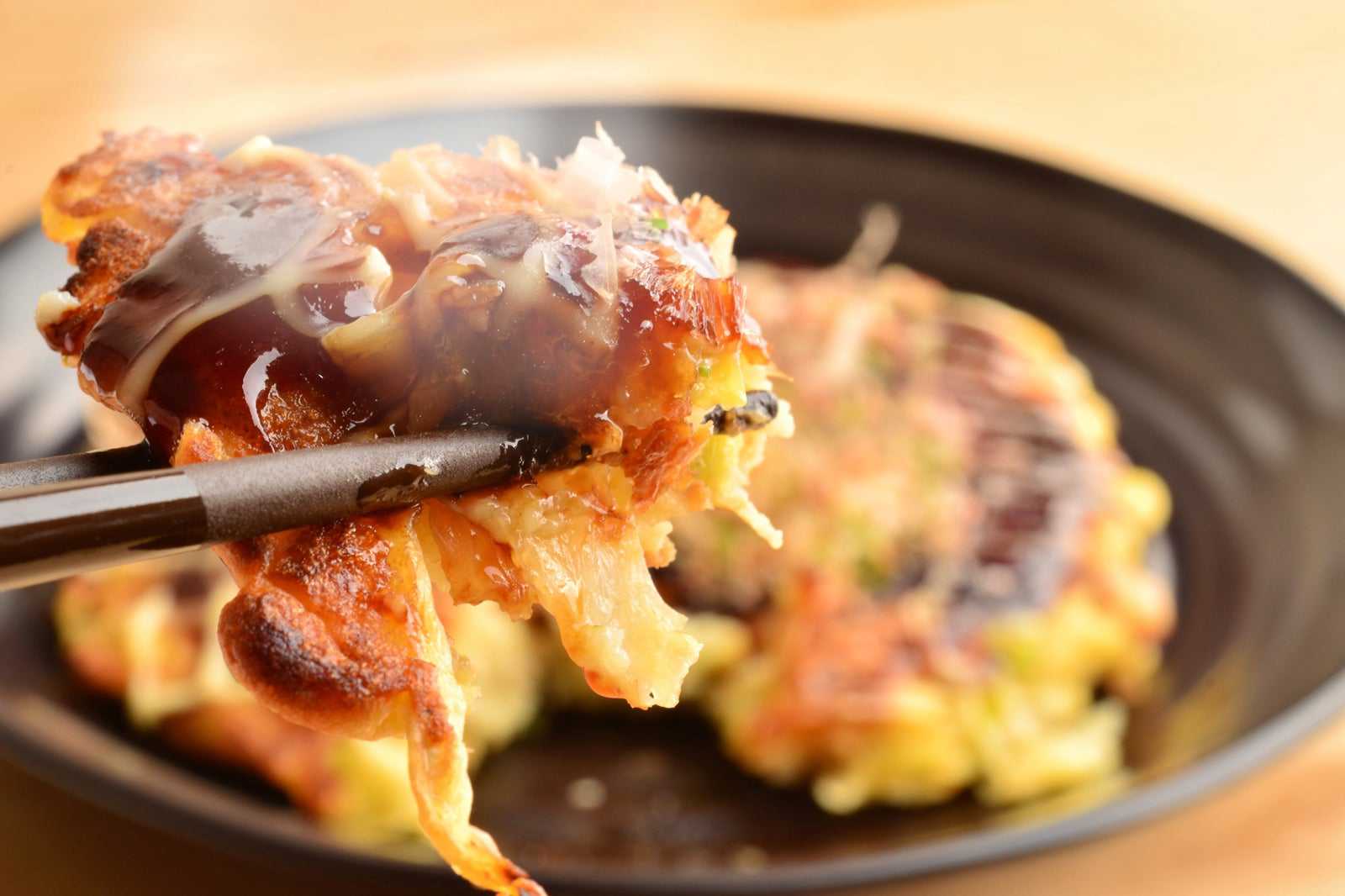
- Bajet
- Makanan
The basic, Osaka-style okonomiyaki is made of flour, grated yam, dashi stock, eggs and shredded cabbage, all mixed together and cooked to a delicately firm consistency. Each restaurant has its own style and method of preparation, so you can have fun trying lots of different places in search of your favourite style.
Some okonomiyaki is made without flour and simply made with yam and eggs. Negiyaki is a version with lots of green onions and without any binding agent, allowing you to fully enjoy the taste of cabbage. Other types come with generous helpings of seafood and meats. Some restaurants serve raw ingredients for customers to cook okonomiyaki by themselves, while other places serve it fully cooked.
Peta - 8
Box sushi (hakozushi)
Sushi seasoned with vinegar
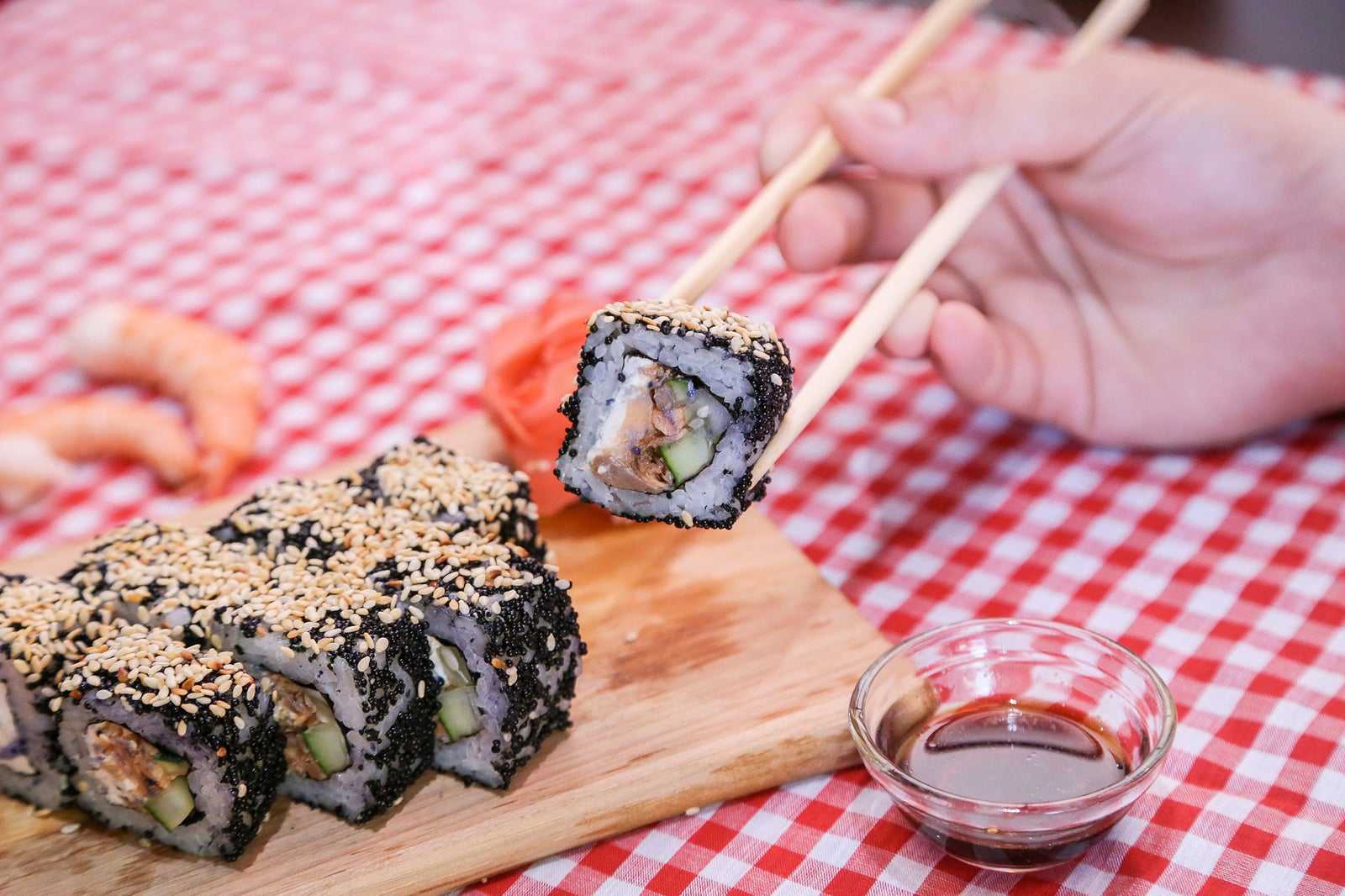
- Makanan
- Sejarah
- Mewah
Unlike the typical hand-shaped sushi you'd come across in Japan, Osaka's box sushi is basically made for the purpose of preserving. Hako zushi, also called Osaka sushi, consists of vinegared rice pressed in a wooden frame with seafood marinated in vinegar. This dish is often enjoyed during festive occasions and at theatres, thanks to its beautiful presentation.
You can enjoy box sushi without soy sauce since the rice and ingredients are already seasoned. Unlike Edo-style sushi, where the rank of a sushi restaurant was determined by the flavour of the tuna, hakozushi tends to use white fish from the Seto Inland Sea.
Peta - 9
Udon noodles
A key Osaka dish with strong flavour
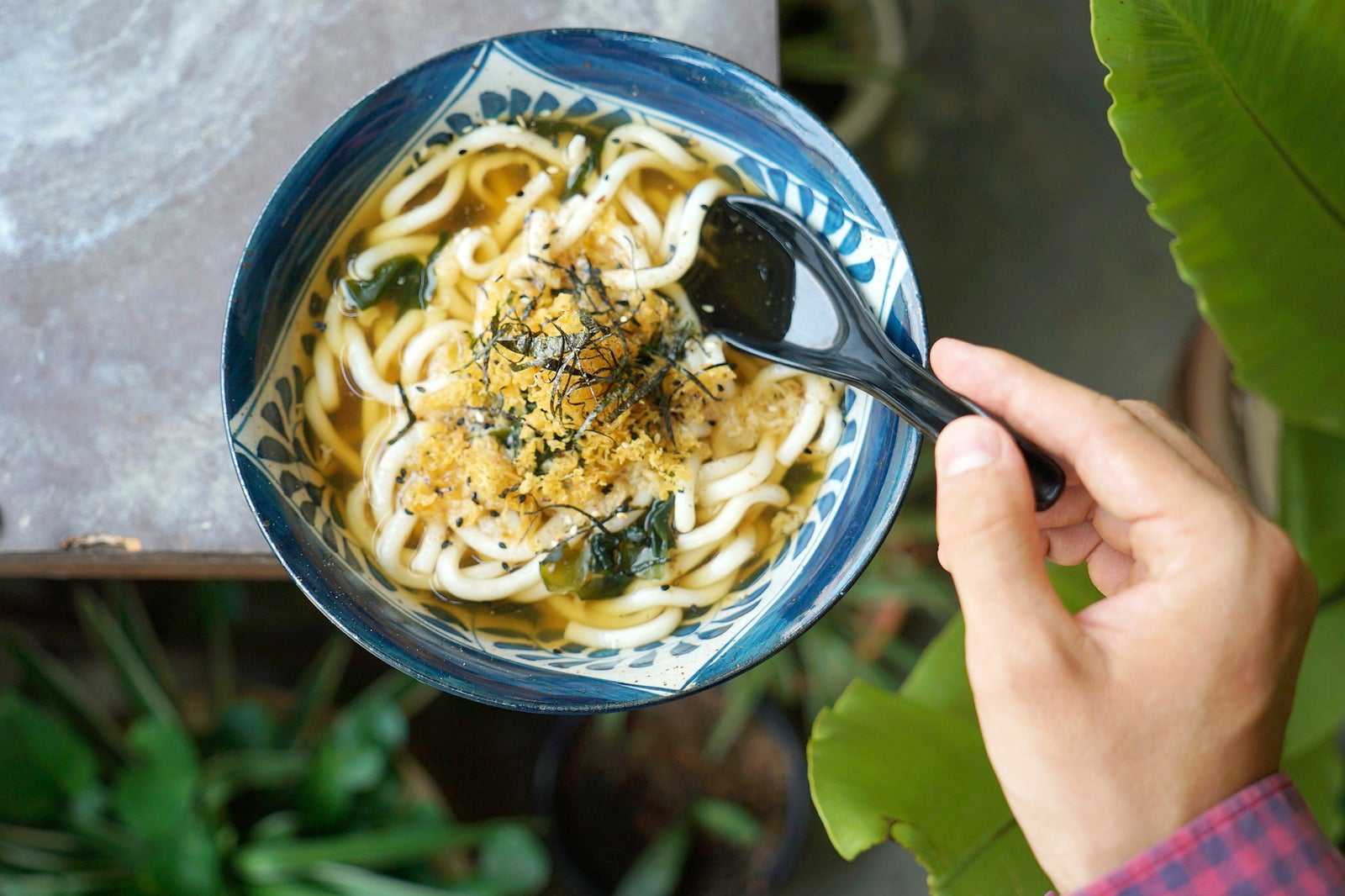
- Makanan
- Luar biasa
Udon noodles in Osaka are the perfect dish in which to enjoy umami, a simple yet very intense taste that comes from dashi. Dashi is a stock made with layered kelp and bonito flakes, and it has its origins in Osaka. Golden dashi with a light soy sauce, is there anything better?
Udon in Osaka is softer than Kagawa's firm and chewy Sanuki udon. Enjoy the varieties of udon that the locals love, such as udon with mild deep-fried beancurd simmered in sweet stock (kitsune udon), udon with beef innards fried in lard (kasu udon) and udon in a rich dashi-curry soup.
Peta - 10
Confectionery of sweetened beans (kintsuba)
For those with a sweet tooth
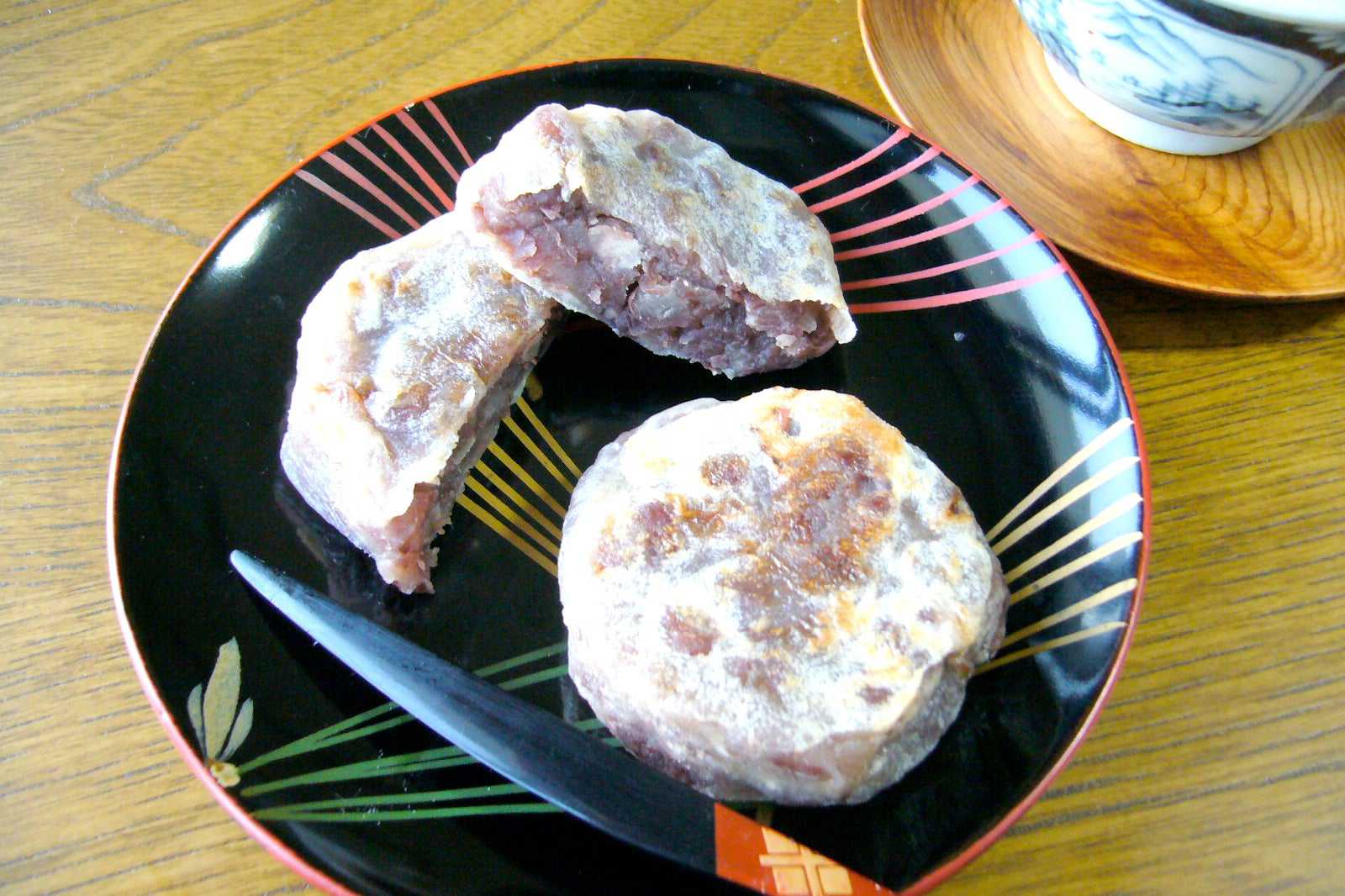
- Keluarga
- Makanan
- Sejarah
Kintsuba is a Japanese confectionery made in the shape of a sword guard. Covered with rice flour when baked, this delicious confectionery has a filling of sweetened and crushed beans.
When it was brought into Edo (modern-day Tokyo), wheat flour dough was used to cover the filings and obtain a golden colour when baked, with the belief that gold brings more luck than silver. While you can buy prepackaged kintsuba at station booths, the best ones come freshly baked at popular local shops. The cakes are soft on the outside and a little chewy, accompanied by a memorably rich taste from the filling. Product demonstrations sometimes take place at certain department stores, so keep on the lookout.
Peta



